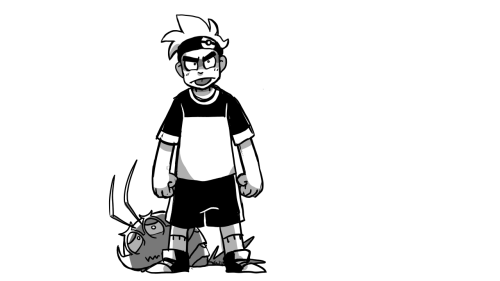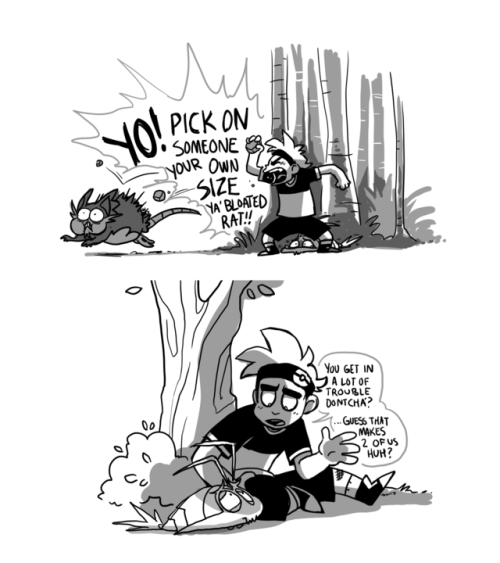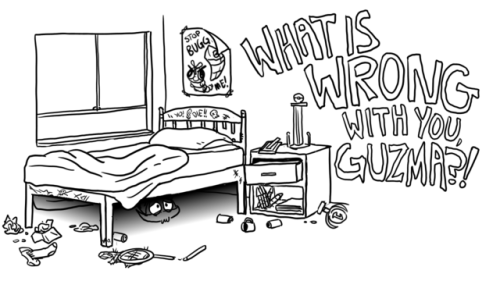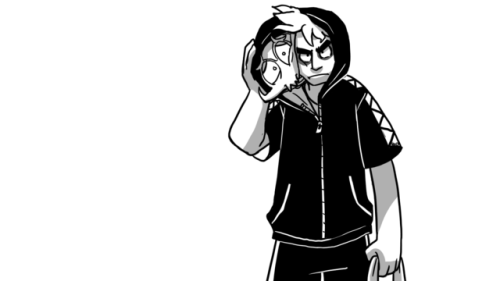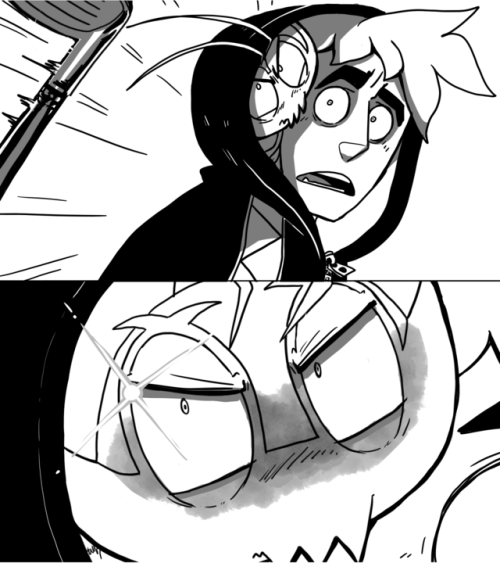Silly Meme Redraw With One Mr. Rockstar Prosecutor
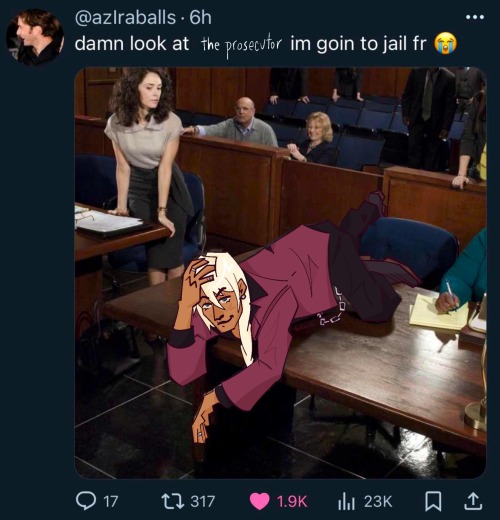
silly meme redraw with one mr. rockstar prosecutor
More Posts from The-doe-prince and Others
Said Snape…
An analysis inspired by my username :)
There are about 300* times in the series that Snape’s delivery of dialogue contains additional descriptives beyond “said”, giving us insight into his tone. I thought it might be interesting to take a look at what this can tell us about Snape’s character. And if you’re a fic writer looking to have your Snape reflect canon!Snape as much as possible (or even if not, and you’re looking to make choices that will distinguish him from canon!Snape), I figured this might be a helpful resource.
[Adverbs] Snape says things…


...softly or quietly, most often, followed by coldly, coolly, or icily, and then smoothly, silkily, or sleekly.
This trend holds when we look across not just adverbs modifying “said” but all verbs of speech. Here's how those descriptors are used across the books in the series:

And here's what that looks like split up by the different eras in Snape's life:

Snape is most often described as saying things “repressively” or “dismissively” as well as “calmly”, “slowly”, or “deliberately” in his double agent days, which are adverbs that convey a certain amount of control over the conversation, information, and his own temperament. Taken together, this may reflect his increased caution and the high-stakes nature of information at this stage.
Although Snape displays little patience for those not at his level even in his teenage years (“just shove a bezoar down their throats” comes to mind), his dialogue only reflects this with adverbs such as “sharply” or “curtly” once he has established himself as an authority figure. We will see a similar pattern below with verbs and adjectives conveying impatience.
[Verbs] When Snape doesn’t simply “say” something, he…

...Most often is expressing a negative emotion: shouting, yelling, bellowing or snarling and spitting. The largest portion of Snape’s shouts occur in HBP, specifically in Flight of the Prince, as he tries to direct the Death Eaters to leave and faces Harry. But looking across these first two emotionally-charged categories, about 30% of these (perhaps not surprisingly) occur in Prisoner of Azkaban, where Snape is spends a notable chunk of the book in an extremely emotional state.
However, he's not always shouting or snarling; approximately 15% of the time when he is not simply speaking, he is whispering or hissing, which complements the 25% of the time that he is speaking softly or quietly.
Let's look at this in relation to Snape's timeline:

It's fitting that the majority of Snape’s inquiries occur after Voldemort’s return, when he returns to his double agent role, gathering intelligence.
I also think it’s interesting what we don’t see in Snape’s school days. In childhood/school there’s relatively little superciliousness—instead, we see more argumentation; Snape argues, demands, pants, splutters, and backtracks.
Snape’s brand of snippy impatience and condescension (sneered/snarled/snapped, etc) is most evident in his days as a professor (before Voldemort’s return through his years as a double agent). In his deep cover years it declines; he no longer has the time and he’s focused on the task at hand.
Let's now look at the adjectives used to describe Snape's tone. Snape says things in a tone of voice that is…

...Most often soft, low, or quiet, followed by cold or icy, and then by sneering or sardonic. I find it fitting that Snape’s tone is described as impatient in GOF and HBP, both books in which Snape spends the year on tenterhooks, waiting for the axe to fall.

When we look at how these adjectives are distributed across Snape's lifetime, we can see that Snape’s vocalizations described as “terrible” only three times, and they occur at pivotal moments: Lily’s death and his own. Additionally, Snape’s unconcerned or bored tone comes out during his double agent years, and 3 out of the 4 times it is used as an affectation.
Misc. notes: It is also notable when there are a lack of descriptors surrounding Snape’s speech altogether. There are definitely fewer in the first two books, likely given their shorter length and lower reading level. However, there are three moments in Deathly Hallows that, taken together, really stood out to me: The Dark Lord Ascending, Voldemort’s visit to Hogwarts to take the Elder Wand, and Snape’s meeting with Voldemort in the Shrieking Shack (no descriptions of speech besides "blankly", up until the moment of Snape’s murder, during which he protests and lets out a terrible scream). The lack of description of Snape's speech is a neat nonverbal way to convey to us readers the flattening effect of Occlumency.
Anyway, hope this was interesting, and I’d absolutely love to hear any additional insights you all pull out of this!
*This is by no means meant to be the definitive, exhaustive analysis of Snape’s speech. This was completed doing simple searches for dialogue with “Snape” (didn’t have the raw text to write a script or anything), so it’s entirely possible that I’ve missed several instances of Snape speaking when referred to as “he” and the dialogue in question is several lines away from his name. However, I believe those cases are relatively few, so I’m fairly confident that I have a majority of the instances in which Snape’s dialogue is described with an adverb, adjective denoting tone, or with a verb other than “said”. It’s likely the remainder would follow similar trends if they are dispersed sporadically throughout the series.

I have a lot of feelings about this scene. Because from Harry's POV at this point obviously Snape is the mean bully who's always picked on him for no reason and it's gratifying to see Sirius standing up to him and putting him in his place. And at this point in the story that's kind of what we as readers see too. BUT with the additional knowledge we gain about Snape throughout the rest of the story this hits so different.
Think about Snape, who spent years being tormented and humiliated by Sirius and who has carefully rebuilt himself from that, but who still has all the open wounds and trauma from it lurking just beneath the surface. Think about how he's so used to Sirius hurting and humiliating him that the second Sirius stands it's a reflex to grab his wand. And he's not just holding it. He's balled his fist around it - an obvious sign of stress from someone who usually masks it so well - because this isn't just another duel. This isn't even like facing Voldemort.
No matter that Snape is much older and more capable and more powerful now. When it's Sirius suddenly Snape is 15 again and all those memories and feelings of powerlessness and humiliation come rushing back.
Re-read this bit in Half-Blood Prince again and thinking about how blatantly it seems to be telling us that Harry is biased against Snape and our impression of him thus far has been clouded by seeing him through Harry's eyes (emphases mine):
‘The Dark Arts,’ said Snape, ‘are many, varied, ever-changing and eternal. Fighting them is like fighting a many-headed monster, which, each time a neck is severed, sprouts a head even fiercer and cleverer than before. You are fighting that which is unfixed, mutating, indestructible.’ Harry stared at Snape. It was surely one thing to respect the Dark Arts as a dangerous enemy, another to speak of them, as Snape was doing, with a loving caress in his voice? . . . ‘He tried to jinx me, in case you didn’t notice!’ fumed Harry. ‘I had enough of that during those Occlumency lessons! Why doesn’t he use another guinea pig for a change? What’s Dumbledore playing at, anyway, letting him teach Defence? Did you hear him talking about the Dark Arts? He loves them! All that unfixed, indestructible stuff -‘ ‘Well,’ said Hermione, ‘I thought he sounded a bit like you.’ ‘Like me?’ ‘Yes, when you were telling us what it’s like to face Voldemort. You said it wasn’t just memorising a bunch of spells, you said it was just you and your brains and your guts - well, wasn’t that what Snape was saying? That it really comes down to being brave and quick-thinking?’ Harry was so disarmed that she had thought his words as well worth memorising as The Standard Book of Spells that he did not argue.
Half-Blood Prince, Ch. 9
There's a direct contrast being drawn from one scene to the next between Harry's perception of Snape and Hermione's less-biased, more critical one. Where Harry hears a "loving caress" for the dark arts in Snape's voice, Hermione hears the passionate, determined explanation that Harry gave a year earlier - one based in a firsthand understanding of what it takes to protect oneself from harm against dark magic.
This is also the first scene in this book where we see Snape teaching a class. The first time he shows up in the book is when he's entrusted by Tonks to deliver Harry safely to the Great Hall from the school gates. So the first encounter with Snape in HBP is as Harry's protector, be it begrudging or not, and the second is one where an immediate parallel is drawn after between him and Harry, Hermione questioning the latter's bias and hinting to the reader that judging him based on Harry's perception may not paint an accurate picture of Snape. Through the rest of the book we see Harry have an increasingly hostile relationship with Snape while developing a great fondness for the Half-Blood Prince, despite it also being Snape, only Harry doesn't know that, so he's able to see his humor and cleverness.
This theme is a dominant one throughout the book, though it doesn't become clear until the end when we find out Snape was the Half-Blood Prince, but by then our impression of the Prince is murky given the unexpectedly violent outcome of Harry trying out Sectumsempra (and it can be argued he's to blame for doing so against another person instead of finding out what the spell does in a safer way), and our impression of Snape is even worse given that he'd just killed Dumbledore. We don't find out until the next book that Snape had been fighting on the same side as Harry the whole time, risking - and eventually losing - his life for the same cause. In retrospect, Rowling (boo, hiss) spends a lot of time in HBP dropping breadcrumbs that Harry's impression of Snape - and thus the reader's - is affected by bias and thus inaccurate.

Lily & Sev friendship moments ♡
The heads of house have been asked to dress up. Some kind of founders celebration day? ♡


Nahyuta presented to followers.
Okay hear me out on this one, after episode 3 I’ve had a lot of theories about the cast (mainly Kinger) but one that I’ve seen no one really talk about is this.
I think if Kinger were to abstract it will indirectly cause the groups downfall. In an actual game of chess, if you lose the king you lose the game. I think I’d be cool if this is applied in a more literal sense in the circus - they lose the king they slowly start to crumble.
Perhaps there’s more tension in the group after it, maybe say Jax makes a jokey comment about how he knew I’d happen and that annoys Pomni cause she grew to really like Kinger, maybe someone else abstracts as a result of Kinger’s loss. Idk haven’t really thought further ahead, there’s honestly many ways to go about this.
Severitus

-
 galacticsabc liked this · 2 weeks ago
galacticsabc liked this · 2 weeks ago -
 100flowershame liked this · 3 weeks ago
100flowershame liked this · 3 weeks ago -
 paxopalotls liked this · 3 weeks ago
paxopalotls liked this · 3 weeks ago -
 emolgabrine liked this · 4 weeks ago
emolgabrine liked this · 4 weeks ago -
 mlomp12 liked this · 1 month ago
mlomp12 liked this · 1 month ago -
 stars-of-opal liked this · 1 month ago
stars-of-opal liked this · 1 month ago -
 starrylittlemiss liked this · 1 month ago
starrylittlemiss liked this · 1 month ago -
 jimjamsortimtams liked this · 1 month ago
jimjamsortimtams liked this · 1 month ago -
 rusherbooks reblogged this · 2 months ago
rusherbooks reblogged this · 2 months ago -
 zestygoobieisreal liked this · 2 months ago
zestygoobieisreal liked this · 2 months ago -
 furnozal liked this · 2 months ago
furnozal liked this · 2 months ago -
 queen-of-kiwis reblogged this · 2 months ago
queen-of-kiwis reblogged this · 2 months ago -
 queen-of-kiwis liked this · 2 months ago
queen-of-kiwis liked this · 2 months ago -
 they-call-me-the-reblogger reblogged this · 2 months ago
they-call-me-the-reblogger reblogged this · 2 months ago -
 valenhallows liked this · 2 months ago
valenhallows liked this · 2 months ago -
 valenhallows reblogged this · 2 months ago
valenhallows reblogged this · 2 months ago -
 thetragicplaquedoctor liked this · 3 months ago
thetragicplaquedoctor liked this · 3 months ago -
 the-birb-from-italy liked this · 3 months ago
the-birb-from-italy liked this · 3 months ago -
 cocatgaming12 liked this · 3 months ago
cocatgaming12 liked this · 3 months ago -
 jabsbabsu liked this · 3 months ago
jabsbabsu liked this · 3 months ago -
 moni48isa liked this · 3 months ago
moni48isa liked this · 3 months ago -
 axeliala liked this · 3 months ago
axeliala liked this · 3 months ago -
 dariosapainting liked this · 3 months ago
dariosapainting liked this · 3 months ago -
 nano-chi liked this · 3 months ago
nano-chi liked this · 3 months ago -
 sisyphus-prime reblogged this · 3 months ago
sisyphus-prime reblogged this · 3 months ago -
 peacchidrops reblogged this · 3 months ago
peacchidrops reblogged this · 3 months ago -
 anelectricheartbeat liked this · 3 months ago
anelectricheartbeat liked this · 3 months ago -
 ori12000 liked this · 3 months ago
ori12000 liked this · 3 months ago -
 blueetwo liked this · 3 months ago
blueetwo liked this · 3 months ago -
 rando-blogger liked this · 3 months ago
rando-blogger liked this · 3 months ago -
 cryptidbreathmints liked this · 3 months ago
cryptidbreathmints liked this · 3 months ago -
 soldiermylove liked this · 4 months ago
soldiermylove liked this · 4 months ago -
 kuerie liked this · 4 months ago
kuerie liked this · 4 months ago -
 bubbleteabri reblogged this · 4 months ago
bubbleteabri reblogged this · 4 months ago -
 bubbleteabri liked this · 4 months ago
bubbleteabri liked this · 4 months ago -
 yvesdroppingz liked this · 4 months ago
yvesdroppingz liked this · 4 months ago -
 sneakyswag liked this · 4 months ago
sneakyswag liked this · 4 months ago -
 ghostbonezzz liked this · 4 months ago
ghostbonezzz liked this · 4 months ago -
 kuroken-lovechild liked this · 4 months ago
kuroken-lovechild liked this · 4 months ago -
 calamitycrash reblogged this · 4 months ago
calamitycrash reblogged this · 4 months ago -
 spoonmoment119 liked this · 4 months ago
spoonmoment119 liked this · 4 months ago -
 0-pineapple-prince-0 liked this · 5 months ago
0-pineapple-prince-0 liked this · 5 months ago -
 fishfuzz liked this · 5 months ago
fishfuzz liked this · 5 months ago -
 aromanticattorney liked this · 5 months ago
aromanticattorney liked this · 5 months ago -
 sofya-vas liked this · 5 months ago
sofya-vas liked this · 5 months ago -
 liuer9 liked this · 5 months ago
liuer9 liked this · 5 months ago -
 sporadicpiehoagiegoth liked this · 5 months ago
sporadicpiehoagiegoth liked this · 5 months ago -
 rosesandwendigos liked this · 5 months ago
rosesandwendigos liked this · 5 months ago -
 ghoul--doodle liked this · 5 months ago
ghoul--doodle liked this · 5 months ago -
 softpinkhearted liked this · 5 months ago
softpinkhearted liked this · 5 months ago

Instead of using my autism for productivity I use it to overanalyse fictional characters ☠️Might have ADHD too
174 posts
